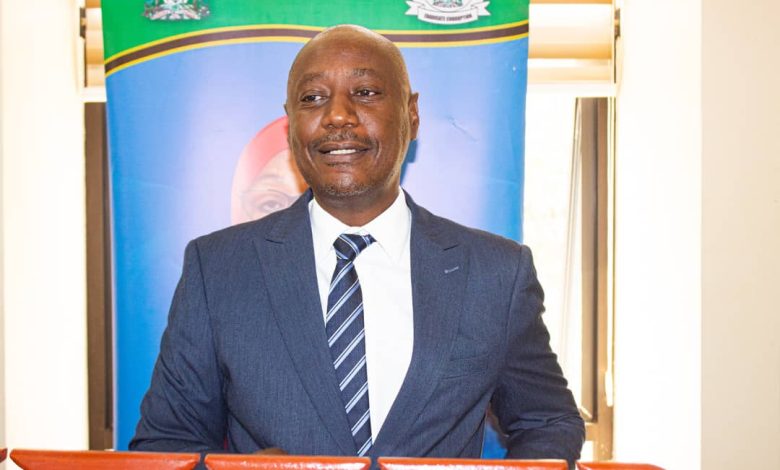Journos reminded of role in anti-graft crusade

SINGIDA: IT has often been emphasised that free and fair elections are the cornerstone of democracy in every country.
The media plays a vital role in this process, given its unique position in society as the “fourth estate” — with the power to inform citizens, scrutinize candidates, expose wrongdoing and shape public opinion.
As Tanzania prepares to hold general election on October 29, 2025, responsible media are not just desirable but essential in preventing corruption during this democratic exercise.
This is not an option but a core responsibility of the media. Doing so will help ensure citizens elect the right leaders who prioritise people-centred development and poverty eradication. Journalists act as watchdogs, the eyes and ears of society, monitoring electoral processes, campaign financing and the conduct of officials.
Through programmes on electronic media, publications and social media, they can educate voters with balanced reporting.
By equipping citizens with accurate information about their rights, election procedures and the dangers of vote-buying or other corrupt practices, the media empowers the electorate to make informed decisions. The media also plays a central role in exposing electoral malpractice through investigative journalism.
ALSO READ: PCCB pledges clean election in anti-graft crusade
This may include uncovering bribery, misuse of state resources, intimidation or misinformation that undermines the will of the people. By upholding integrity within its own operations — avoiding bribery, “brown envelopes,” or biased reporting — the media models the transparency and accountability it expects from others.
Moreover, when the media actively prevents and reports corruption, it strengthens democracy by ensuring elected leaders genuinely reflect the will of the people, thereby increasing public trust in government. Recognising this, the Prevention and Combating of Corruption Bureau (PCCB) recently organised a one-day training in Singida to remind journalists of their responsibility in the fight against graft during elections and beyond.
PCCB’s Singida Bureau Chief, Mr Sosteness Kibwengo, described the media as one of the Bureau’s most important stakeholders.
“The media is often referred to as the unofficial fourth estate. It educates, informs, entertains and holds those in authority accountable — acting as the eyes and ears of many. Journalists have a crucial role in society, giving citizens vital information about development and current events,” he explained.
He said the media not only holds leaders to account but also provides platforms for debate and free expression. He urged journalists to remain clean and professional in their work, warning that corruption in elections undermines democracy, creates inequality and discourages principled leaders from seeking office.
“To educate and expose corruption, we must mirror our own conduct, ensuring we do not fall into the bondage of corruption. We must uphold professionalism, public interest, accountability, patriotism, integrity, confidentiality and avoid conflicts of interest. Journalists should not be part of the problem but part of the solution,” he advised.
Mr Kibwengo called on journalists to educate society on the dangers of electoral corruption, mobilise citizens to reject it and continuously highlight the importance of respecting election laws and procedures. He further encouraged the media to run regular programmes on anti-corruption, government initiatives to curb graft and efforts to strengthen good governance.
ALSO READ: SADC urged to adopt TZ, Mauritius anti-graft model
He stressed the importance of collaboration between journalists, PCCB and other stakeholders to change the perception of elections as a “harvest season” and instead present them as a critical period for reflection and decision-making.
Mr Benjamin Masyaga, Head of the Public Education Desk at PCCB Singida, advised journalists to be alert to suspicious practices during campaigns.
These may include aspirants offering gifts such as food, clothes, mobile phones or paying bills for groups of people — all tactics that could influence voters improperly. He cautioned that while candidates may appear generous, such gestures often mask ulterior motives, risking the election of leaders who do not prioritise genuine development.
Other warning signs for journalists include aspirants sponsoring groups, abrupt withdrawals from elections or unusual voter boycotts. Regional guidelines for election coverage were developed in 2012 by the Media Institute of Southern Africa (MISA) and other stakeholders.
These outlined the role of the media in elections, ethical standards, the responsibilities of public and private media and the handling of sensitive issues such as opinion polls, talk shows and reporting results. Tanzania’s Political Party Elections Broadcasts Code (2020) further requires all content providers to ensure fair, impartial and balanced coverage during elections.
This includes avoiding inflammatory language, defamatory content or divisive appeals based on gender, race, religion or origin. By adhering to these principles, journalists not only safeguard democracy but also enhance public participation and strengthen governance.
Since fighting corruption is the responsibility of every citizen of Tanzania, PCCB has outlined six functions to ensure wider participation of the stakeholders and public at large to join the bandwagon.

One of PCCB’s core functions is to educate the members of the public to despise corruption and motivate them to work with the government to prevent and combat it. Under this function, the PCCB in Singida Region has met several groups including journalists and people with disabilities (PWDs) to train them on their role in fighting corruption in elections.
PCCB also conducts assessments on public and private service delivery systems to identify indicators of corruption and take appropriate action. The Bureau also receives reports regarding complaints or reports of corruption allegations.
After receiving the report, PCCB investigates and prosecutes corruption suspects in accordance with legal requirements related to corruption offences.
It provides professional advice to informants, guiding them on steps to take where the information provided relates to corruption offences as well as informing the public about the Government’s responsibilities in the fight against corruption to build citizens’ trust in their Government.


